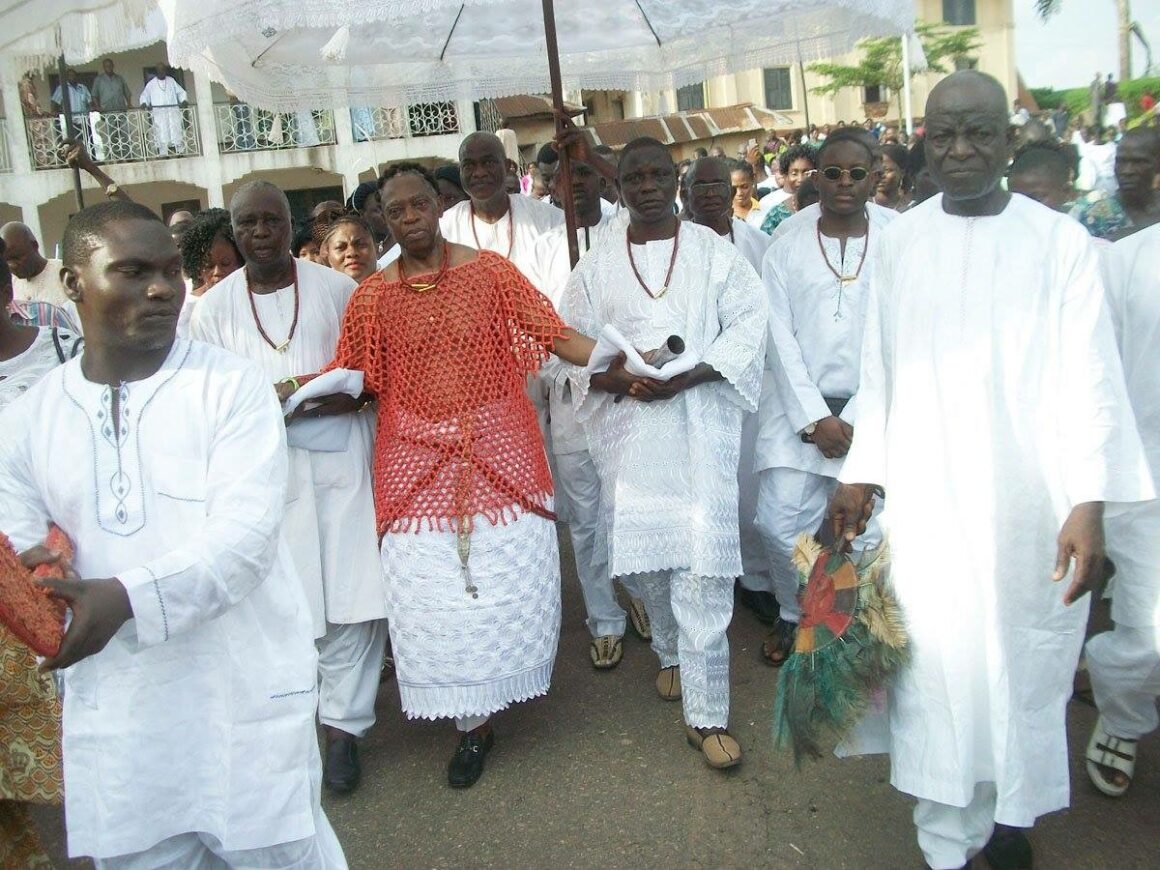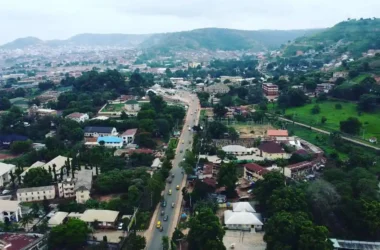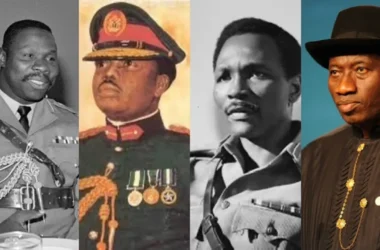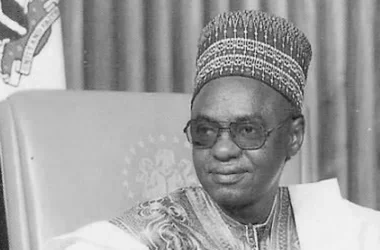The Igogo Festival is one of the most significant cultural celebrations in Owo, Ondo State, Nigeria. It is a 17-day annual festival held in September to honor Queen Oronsen, a revered figure in the town’s history. This festival has been observed for over 600 years, dating back to the reign of Olowo Rerengejen, the 13th Olowo of Owo. It is a unique blend of tradition, spirituality, and celebration that brings the entire Owo Kingdom together in a grand display of heritage.
As someone from Owo, Ondo State, I have personally witnessed the Igogo Festival many times, and it is one of the most captivating experiences one can have. The air is filled with excitement, and the streets are alive with colors, music, and traditional performances. The festival is not just about entertainment; it is a deep-rooted tradition that has shaped the identity of Owo people for centuries.
Origins of the Igogo Festival
The festival’s roots lie in a fascinating legend. Olowo Rerengejen, a former king of Owo, married a beautiful and mysterious woman named Oronsen, who possessed supernatural abilities. Unknown to the king, Oronsen was an Orisha (a deity) with special rules and taboos that had to be respected.
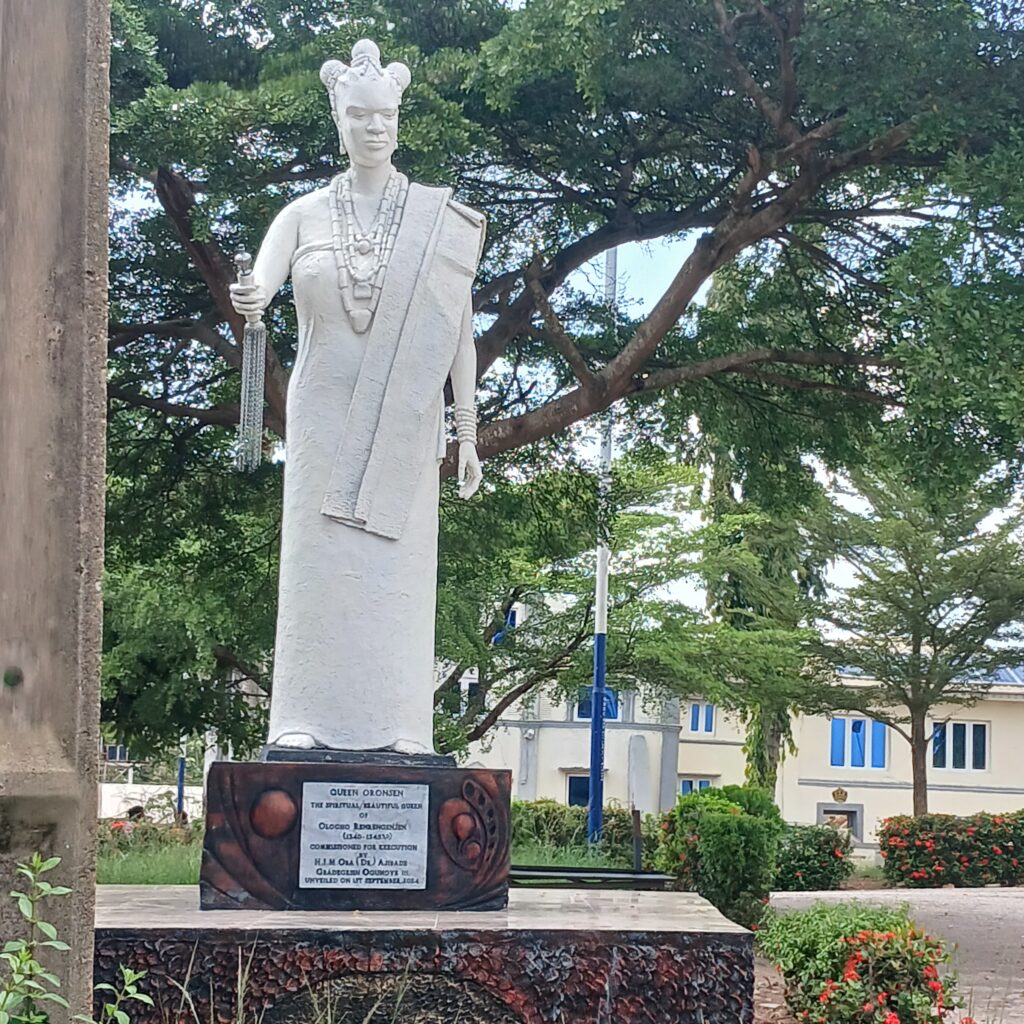
Queen Oronsen’s Taboos
Queen Oronsen had several strict taboos that the people of Owo were expected to follow:
- Grinding okra was forbidden
- Pouring water into the yard was prohibited
- Throwing firewood in her presence was not allowed
For a time, the kingdom thrived under Queen Oronsen, and the king deeply loved her. However, the other wives of Olowo Rerengejen became jealous of Oronsen’s influence and deliberately violated her taboos while the king was away. Enraged and heartbroken, Oronsen fled into the sacred forest known as Igbo Oluwa, leaving behind her head ties (oja) at Ugbo Laja, a site that has since become sacred in Owo.
The Significance of the Igogo Festival
Before disappearing, Queen Oronsen promised to continue watching over Owo but requested an annual ritual offering to honor her spirit and maintain peace in the kingdom. This annual festival became known as Igogo.
The Igogo Festival is a spiritual, cultural, and economic event that has continued for centuries. The rituals include prayers for prosperity, sacrifices, and grand processions.
Traditions and Rituals of the Igogo Festival
Each year, the Igogo Festival is marked by several unique traditions:
1. The Procession of the Olowo (King) and Chiefs
- The Olowo of Owo and high-ranking chiefs dress in women’s attire, including plaited hair and coral beads, in honor of Queen Oronsen.
- The king dances through the streets to the rhythmic beat of traditional drums.
- No caps, headgear, or drumming is allowed during the procession, following Oronsen’s taboos.
2. The Annual Ritual Sacrifices
- Two hundred different sacrificial items, including dried fish, kola nuts, alligator pepper, and bitter kola, are offered at Igbo Oluwa to appease Queen Oronsen’s spirit.
- Devotees make prayers and offerings to seek her blessings and protection for Owo.
3. The Reenactment of Oronsen’s Journey
- The path Oronsen took while fleeing the palace is symbolically retraced.
- Special songs and chants are performed in her memory.
Personal Experience
Being from Owo, Ondo State, I have personally witnessed the vibrancy and deep significance of the Igogo Festival. The atmosphere in the town during these 17 days is something words can barely capture. Families reunite, businesses boom, and there’s a strong sense of tradition that takes over everything.
As a child, I remember watching the Olowo and his chiefs dressed in elaborate coral bead regalia, their hair braided like women’s—a sight that always intrigued me. Seeing the King dance through the streets, without any headgear, surrounded by drummers and worshippers, felt like stepping into history.
There’s a particular air of mystery during the festival. The stories of Oronsen’s disappearance still spark debates among elders, with many claiming that her spirit still roams the sacred Igbo Oluwa forest. The festival isn’t just a tradition—it’s a spiritual experience that connects Owo to its roots.
Modern Developments in the Igogo Festival
The Olowo of Owo, Oba Ajibade Gbadegesin Ogunoye III, has initiated efforts to modernize and promote the Igogo Festival as a global tourist attraction.
New Additions to the Festival
- Oronsen Beauty Pageant – To crown a “Queen Oronsen” for a year.
- Festival Market – A trade fair showcasing local crafts, food, and art.
- Ogwha Lopo Ceremony – A special event where the Olowo meets with subjects, tourists, and well-wishers to give his royal blessings.
- Reenactment of the Udan Dancers – Featuring young maidens adorned in beads, celebrating the historical train of the Igogo Olowo procession.
Economic Impact
- The festival aims to attract 500,000 tourists annually.
- The economic goal is to generate $1 billion through tourism and cultural activities.
Igogo Festival’s Influence on Owo’s Economy and Identity
Beyond the cultural and spiritual significance, the Igogo Festival is a massive economic driver. For those of us from Owo, we see firsthand how businesses thrive during this period. Hotels get fully booked, food vendors make massive sales, and artisans sell locally made crafts.
Local drummers, dancers, and masquerades also get to showcase their talents, adding a beautiful layer of entertainment to the celebrations. It’s incredible how this centuries-old tradition still holds such economic and social relevance in modern times.
Conclusion
The Igogo Festival is more than just a historical tradition—it is the heartbeat of Owo culture. Every year, we don’t just remember Queen Oronsen’s sacrifice; we reconnect with our identity.
As someone who has grown up with this festival, I can confidently say that the Igogo Festival is a symbol of Owo’s resilience, spirituality, and rich heritage. Whether you’re an Owo indigene or a tourist looking for an authentic Yoruba cultural experience, the Igogo Festival is one event that truly embodies the spirit of our great town.
For anyone asking, “What is the history of Igogo Festival in Owo?”, the answer lies in its deep-rooted tradition, cultural significance, and evolving impact on the local and global stage.
References
- Igogo Festival – Wikipedia
- 800-Year-Old Igogo Festival: Olowo of Owo Unveils Global Repackaging Plan & Economic Gains – Sunshine Truth NG
- People and Culture of Nigeria: The Igogo Festival – Fatherland Gazette
- Igogo Festival to Attract 500,000 Tourists to Ondo Monarch – Punch NG
- The Igogo Festival, Owo, Ondo State – Anago Adventures
- Igogo Festival Highlights – Yoruba Life Facebook Page
